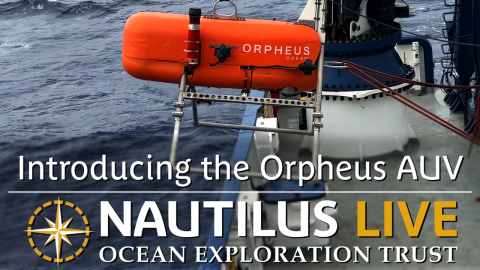
Ishani Narwankar
Tell us about your work/ research. What kinds of things do you do?
At Orpheus Ocean, I am an autonomy and robotics engineer. I am responsible for the software stack of our autonomous underwater vehicle. From mission planning to navigation to sensor fusion, I make sure that our vehicle is able to run autonomously using all of the data that it gathers.
I am a recent graduate of Northwestern, where I got my MS in Robotics and completed a thesis in underwater robotics (Developing a seal bio-inspired robot with soft robotic whisker sensors). During my time as a MS in Robotics student, I also worked at the Monterey Bay Aquarium Research Institute as a Simultaneous Localization and Mapping Intern with the CoMPAS Lab. In between my MS and BS, I went through a long testing process to become an Analog Astronaut with Asclepios (in Lausanne, Switzerland). I became 1/20 of their final candidates for their 2024 Mission. Prior to my graduate studies and work at MBARI, I received a BS in Aerospace Engineering and was primarily focused on autonomous aerial robotics (with research focused on developing UAVs for search and rescue operations during wildfires) and worked at Skydio (an autonomous aerial robotics company in San Mateo, CA) as a Hardware Reliability and Test Engineer.
What sparked your initial interest in your career?
Like many, as a child I was obsessed with building blocks and making different structures. As I grew up, I became interested in helping people in their day-to-day lives by making technology work for them. The first project that I worked on that truly sparked my interest in pursuing robotics as a career was when I developed an autonomous aerial robotics system that helped first responders stay safer by pin-pointing the location of survivors during wildfires (this was a topic that was near to my heart as a California native). From this project I continued developing aerial robotics products and satellite-based algorithms that could be used to help first resonders during natural disasters. As I transitioned from my work in Undergrad to Grad school research work, I became interested in underwater robotics and developing technology to enable deep-sea exploration.
Who influenced you or encouraged you the most?
My parents and family encouraged me the most. They have always encouraged any and all exploration and given me the opportunities to study within different fields.
What element of your work/ study do you think is the most fascinating?
The most recent fascinating thing that I got to be involved with was sending the Orpheus Ocean robot to 2500 m and monitoring as it autonomously surveyed the ocean floor.
How did you get involved with Ocean Exploration Trust? How did you become part of the expedition team?
I'm a guest of OET working on the Orpheus Ocean vehicle.
What other jobs led you to your current career?
I've had many great opportunities that have shaped my career. I'm most excited about how diverse my work experience has been and will continue to be to shape me into a more helpful robotics engineer. I first started my career as a Hardware Test and Reliability Engineer at Skydio (an aerial robotics company in San Mateo, CA), after that I was an Analog Astronaut candidate for Asclepios (an analog mission research organization in Lausanne, Switzerland), afterwards I was a Robotics and SLAM (simultaneous localization and mapping) engineer at the Monterey Bay Aquarium Research Institute which is where I really became interested in developing robots for deep-sea exploration.
What are your degrees and certifications?
BS Aerospace Engineering - The University of Texas at Austin 2023
MS in Robotics - Northwestern University 2024
What are your hobbies?
I love scuba diving, biking, cooking, and baking! (I also love building and flying FPV drones)
What advice would you give someone who wants to have a career like yours?
If you want to get into robotics (or underwater robotics), I would recommend looking for problems in your daily life that you'd like to solve (ex: watering plants on time, putting your shades on a timer based on the time of day, etc) and build a solution that you think would solve that problem. While working to automatize the solution to any of those problems, you will develop a project that ends up teaching you the skills that you need (software, mechanical, electrical, etc) that will have you on your way to becoming a robotics engineer.
Expeditions
Ishani participated in the following Ocean Exploration Trust expeditions:

